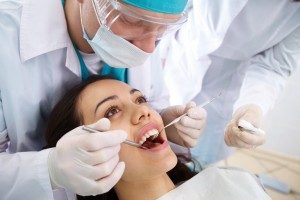POST-OP CARE
The following information is to be used as a guide only.
If you have any concerns after your surgery, please don't hesitate to contact Dr Irving's rooms on (02) 9890 1822.
You should contact your surgeon, general practitioner, or the nearest accident and emergency department if the following problems occur:
- Severe pain not controlled by the medication suggested,
- Continuing bleeding,
- Or, if any other major problems occur after the operation.
General Oral Surgery
In the first 24 hours after your operation, you should NOT:
- Drive a motor vehicle or operate complex machinery.
- Sign any important legal documents.
- Drink alcohol or smoke cigarettes for the first 48 hours.
Note: Following General Anaesthsia you may experience occasional giddiness, tiredness or mild nausea on the day of the operation.
Fluids/Diet
- Soft food as tolerated for the first 24 hours, then follow a sensible diet, with nothing hard to eat for at least 3 days.
- Eat soft nutritious foods, such as soft-boiled eggs, finely chopped meat or cheese, custards, milk, soup, or fruit juices.
- Chew any foods on the other side of your mouth (If you have had 4 teeth removed, then eat on the front teeth).
Activity
- Don't lie flat. Relax, but keep your head elevated to help reduce swelling.
- Avoid excessive activity for 24 hours.
- Avoid vigorous rinsing or spitting for 24 hours.
Pain Relief
- The local anaesthetic given during the procedure may continue for some hours.
- Avoid aspirin.
- Antibiotics and painkillers will be prescribed in most instances. It is important to take the antibiotics as prescribed unless a reaction develops.
- Remember to begin the analgesics before the numbness wears off. It is better to try and prevent the pain rather than try to stop it once it has started.
- Strong analgesics are NOT meant to be taken unless you have strong pain. The side effects include dizziness, nausea and vomiting. If the discomfort is bearable, try a milder analgesic like Panadol.
 Oral Hygiene
Oral Hygiene
The most important feature of the wound healing is the blood clot, which seals the wound, prevents infection, and aids in the formation of new tissue. We recommend the following:
- Don't rinse the mouth for the first 4 hours after surgery. (This avoids washing away the blood clot, which may cause the wound to bleed again).
- Use ice packs for the first 3 days.
- Don't place fingers, pencils, or any object in the mouth (to avoid injury or infection).
- Don't bite or suck a numb lip, cheek, or tongue whilst the local anaesthetic is still acting - a nasty injury may result.
- Watch carefully that younger children don't suck or chew a numb lip, cheek, or tongue.
- Rinse your mouth gently after meals with half a teaspoon of table salt in a glass of lukewarm water. Commence this the day after surgery (every 3 - 4 hours).
- You may brush your teeth with a SOFT toothbrush the next day using your regular toothpaste. Rinse out normally and then with the lukewarm salty water.
- Sutures, in most cases, are dissolving, and will begin to fall out at approximately 7 to 10 days after placement.
Excessive Bleeding
Continued bleeding is not normal. The first action is to remove any excessive blood clots from the mouth.
- Apply a rolled gauze square or small folded handkerchief to the wound and keep it in place under pressure or firmly close your jaws on it, for at least thirty minutes.
- The cloth must be clean and dampened.
If the bleeding cannot be stopped by this method, call your surgeon. If this occurs after hours, attend the nearest accident and emergency department.
Post-Op Contact
Dr Irving's rooms will contact you the next working day to further discuss your post-operative care.
